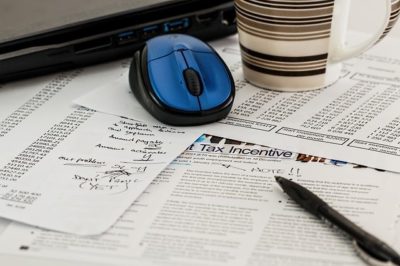UPDATE: Congress passed legislation for additional funding for small businesses.
- Approximately $310 billion more for the Paycheck Protection Program with no changes to eligibility requirements.
- $10 billion for Economy Injury Disaster Loan (EIDL) Advance Grants and $50 billion additional authorization for EIDL loans
- $75 billion for hospitals and healthcare providers’ COVID-19 expenses and losses
- $25 billion for expanded COVID-19 testing
| A news release from the National Association of Professional Provider Organizations (NAPEO):
The IRS has issued 11 new FAQs regarding Section 2302 tax deferrals, available here. Under the new guidance, the IRS makes clear that PPP borrowers are allowed to defer their share of Social Security until their PPP lender issues a decision that the loan is forgivable, as provided by the CARES Act. This guidance is welcome clarification that eligible employers can take advantage of the tax deferral and receive PPP loan forgiveness so long as the taxes are paid when the lender renders its decision on forgiveness—which could take months. (Amounts deferred up until that date may continue to be deferred until December 31, 2021 or December 31, 2022, as applicable). The FAQs further clarify that an employer will not be required to “elect” to take the deferral over loan forgiveness. Of particular note is Question 4, which states that an employer may begin deferring its share of Social Security immediately, without penalty, until a decision is made on loan forgiveness by its lender: EMPLOYERS WHO HAVE RECEIVED A PPP LOAN, BUT WHOSE LOAN HAS NOT YET BEEN FORGIVEN, MAY DEFER DEPOSIT AND PAYMENT OF THE EMPLOYER’S SHARE OF SOCIAL SECURITY TAX THAT OTHERWISE WOULD BE REQUIRED TO BE MADE BEGINNING ON MARCH 27, 2020, THROUGH THE DATE THE LENDER ISSUES A DECISION TO FORGIVE THE LOAN IN ACCORDANCE WITH PARAGRAPH (G) OF SECTION 1106 OF THE CARES ACT, WITHOUT INCURRING FAILURE TO DEPOSIT AND FAILURE TO PAY PENALTIES. ONCE AN EMPLOYER RECEIVES A DECISION FROM ITS LENDER THAT ITS PPP LOAN IS FORGIVEN, THE EMPLOYER IS NO LONGER ELIGIBLE TO DEFER DEPOSIT AND PAYMENT OF THE EMPLOYER’S SHARE OF SOCIAL SECURITY TAX DUE AFTER THAT DATE. HOWEVER, THE AMOUNT OF THE DEPOSIT AND PAYMENT OF THE EMPLOYER’S SHARE OF SOCIAL SECURITY TAX THAT WAS DEFERRED THROUGH THE DATE THAT THE PPP LOAN IS FORGIVEN CONTINUES TO BE DEFERRED AND WILL BE DUE ON THE “APPLICABLE DATES,” AS DESCRIBED IN FAQS 7 AND 8. Question 2 further provides that “[i]n no case will Employers be required to make a special election to be able to defer deposits and payments of these employment taxes.” Thus, it does not seem that employers will need to notify the IRS of their election, making it almost “in addition to” the PPP loans—at least until a decision on forgiveness has been made. Question 2 also notes that further guidance will be forthcoming regarding how the employer will reflect the deferred deposits and payments.
This communication is for informational purposes only; it is not legal, tax or accounting advice; and should not be acted upon as such. Please consult your attorney/CPA/Accountant regarding any decisions that impact your company or your employees. This post may contain hyperlinks to websites operated by parties other than UniqueHR. Such hyperlinks are provided for reference only. UniqueHR does not control such websites and is not responsible for their content. |


